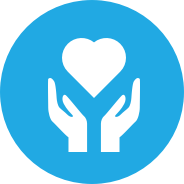
Jamaica
-
Hurricane Melissa
Top articles
2025-11-06T16:36:35+01:00
Story
LAC RMD Statement on IV CELAC-EU Summit
2025-10-07T11:30:00+02:00
Story
Gaza: End the Horror
2024-10-25T16:34:00+02:00
Story
Meet Ximena Canal, the Researcher Working on Social Media and People on the Move in Latin America
2024-06-20T11:25:00+02:00
Story
World Refugee Day 2024
Top missions
2025
Jamaica
Hurricane Melissa
Hurricane Melissa struck Jamaica as a Category 5 storm on October 28, 2025. TSF responded to the emergency in close collaboration with national and regional humanitarian organizations, and provided connectivity to communities and to relief efforts.
2025
- Ongoing
Mexico/Costa Rica/Jamaica
Internet Resiliency
To contribute to community resilience in the face of disasters in Central America, TSF is implementing disaster-resistant connectivity solutions in centers identified for their ability to provide assistance to vulnerable people during crises.
2022
- Ongoing
Mediterranean
Safe Notifications for Rescued Migrants in the Mediterranean
After being rescued in the Mediterranean, survivors are anxious to reassure their families that they are alive. TSF, in partnership with search and rescue NGOs, created a solution for them to send safe notifications to their loved ones.
2022
- Ongoing
Ukraine/Poland/Romania
Emergency response for the populations affected by the war
In response to the war in Ukraine, a TSF team reached Ukraine’s neighbouring countries on 28 February.
2017
- Ongoing
Mexico/Guatemala/Colombia
Latin American migratory movement
TSF developed an information diffusion system for the protection of migrants in transit and asylum seekers in Mexico, Guatemala and Colombia.
Our current missions
7 missions accross 12 countries
Since 1998

20 million
beneficiaries

80+
countries

170+
major crises

850+
supported NGOs
Who we are
Télécoms Sans Frontières (TSF) was founded in 1998 as the world’s first NGO focusing on emergency-response technologies. During humanitarian crises we give affected people the possibility to contact their loved ones and begin to regain control of their lives, as well as we build rapid-response communications centres for local and international responders.
In parallel to this core activity, we also develop, adapt, and make available innovative and cost-effective solutions to assist migrants, refugees, displaced people and other disadvantaged communities in different areas, including education, healthcare, women’s rights and food security.
